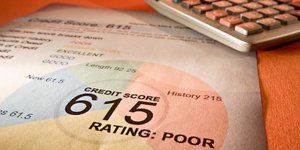Financial fallout from the pandemic is hitting millennials hard — and many will soon turn to their parents for help, if they haven’t already.
Before parents ride to the rescue, financial planners urge them to map out a strategy that doesn’t just plug a short-term need but also makes sense in the long run.
“Often the heartstrings will get pulled — ‘I really have to help them!’— but it can be detrimental to the parent,” says certified financial planner Jeffrey L. Corliss of Westport, Connecticut.
In my latest for the Associated Press, why parents must be cautious when rescuing their children financially.
 Today’s top story: Credit score drop? How to diagnose why and what to do next. Also in the news: Put off debt payments to start saving now, going contactless as a way to pay safer, and many unemployed people aren’t aware of all the relief they may qualify for during the pandemic.
Today’s top story: Credit score drop? How to diagnose why and what to do next. Also in the news: Put off debt payments to start saving now, going contactless as a way to pay safer, and many unemployed people aren’t aware of all the relief they may qualify for during the pandemic. Today’s top story: 6 tips for handling credit card bills if you’ve lost income. Also in the news: How to slash your cell phone bill, how to work around delays in major IRS functions, and how credit card rewards will change after the pandemic.
Today’s top story: 6 tips for handling credit card bills if you’ve lost income. Also in the news: How to slash your cell phone bill, how to work around delays in major IRS functions, and how credit card rewards will change after the pandemic.